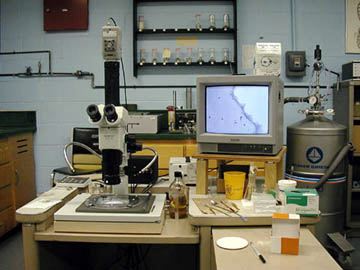 |
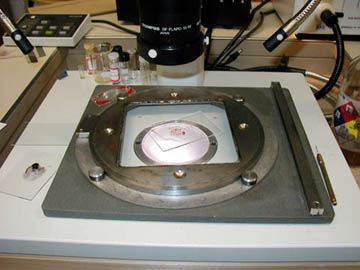 |
| SZX12 stereo
microscope |
SZX12 stereo
microscope stage |
Both our microscopes allow you to use either transmitted light (comes up from underneath) or reflected light (shines down from above).
The white light source on the right behind the SZX12 microscope delivers light from under the stage via a fibre-optic and the light source on the left delivers light through a fibre-optic ringlight. Normally the ringlight is not used, but it is easily attached by first removing the polarizer on the microscope objective lens and sliding on the ringlight. The SZX9 has a twin-gooseneck fibre-optic attached to a black light source. For transmitted light simply swing the upper fibre-optic out of the way. For reflected light you may want to place an opaque sheet (e.g. paper) over the rotating stage centre. Sometimes you may need to raise the microscope higher than its rack-and-pinion mechanism will allow. The release screw on both microscopes is a big black knob on the back of the scope body. Be careful - these are quite heavy microscopes and you do NOT want to slam the objective into the rotating stage.
You will probably be mounting your crystal from a drop of polyisobutene oil.
Important: Wipe off the spatula first - you don't know what the previous user had used it for and you do NOT want to contaminate the oil. Nor do you want to inadvertently determine the structure of someone else's discarded crystals. Believe me, you will feel silly if you do this.
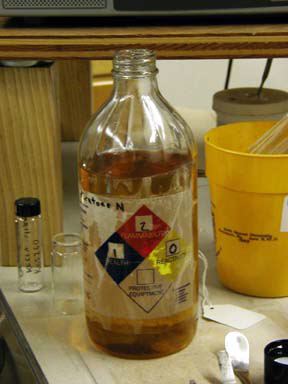 |
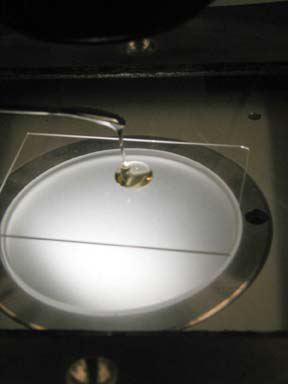 |
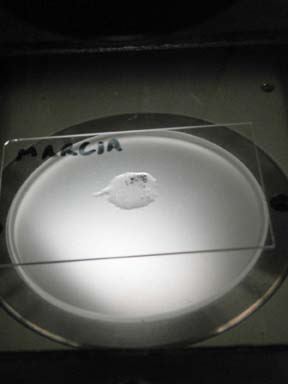 |
| Paratone
oil |
Drop
of oil on slide |
Crystals
in oil on slide |
Get a blob of sticky paratone on a spatula, plop it on a slide, stick some crystals in it and cover them up with the oil. The oil acts is a barrier to air and moisture as well as making a rock-solid mount when it is placed in the cold-gas stream on the diffractometer.
Also, try not to get oil all over the place - it is a nuisance to clean up.
If you know that the spatula has only oil on it (i.e. no crystals, crud, solvent or slime) then wipe the excess from the spatula back into the glass bottle. Otherwise clean it with a tissue.
Return to the main Tutorials page or to the main X-Ray Lab page